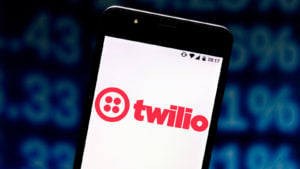
When the market was hitting its highs in February, growth stocks were doing pretty good. Then when the novel coronavirus came along, this group was hammered like the rest of the market.
However, from the March lows, growth stocks have been on a nearly unstoppable run. While that’s quite rewarding for investors, it does create some headaches.
First, we’ve seen a decade’s worth of returns in about six months. If you cashed in on it, pat yourself on the back. However, it’s left a lot of FOMO — fear of missing out — in the market and that can drive instability.
Second, it leads to an eventual pullback. Growth stocks are not immune to the routine 20% to 40% correction. At times, it can be deeper too. Coming off 200%, 300%, 500% and larger returns can make the group even more vulnerable.
With many growth stocks wavering now, investors are trying to figure out what to do. Most of these names were rallying on the prospect that business is booming under Covid-19. They are now falling with a potential vaccine in the works.
While the group could use a healthy pullback, the idea that these stocks are now a “sell” because Covid-19 will disappear is silly. The coronavirus isn’t going anywhere in the short term, and these trends will continue in the long run.
Let’s look at seven growth stocks worth owning:
- Roku (NASDAQ:ROKU)
- Nvidia (NASDAQ:NVDA)
- Shopify (NASDAQ:SHOP)
- Twilio (NYSE:TWLO)
- Fastly (NYSE:FSLY)
- Datadog (NASDAQ:DDOG)
- Alibaba (NYSE:BABA)
Top Growth Stocks to Buy: Roku (ROKU)

Source: JHVEPhoto / Shutterstock.com
I’m going to state this just once and it will apply across the board: the transformation we’re seeing in tech is real and it’s sustainable. Covid-19 did not create new growth channels for these businesses, it simply accelerated the trends that were already in play.
Consumers and businesses are not going to default back to less efficient and more expensive options than what they have now. They won’t simply because it’s less convenient. Roku is a prime example.
Cutting the cord is a trend that’s been in play for years now. It’s why Netflix (NASDAQ:NFLX) has done so well leading up to 2020. With so many people stuck at home during lockdown or staying home voluntarily, they need more entertainment options.
Too many investors still think Roku is “just a streaming stick.”
The company does sell streaming sticks and smart TVs with its technology in it. In fact, Roku is the leading streaming device in the space. However, the hardware portion of its business continues to become less and less relevant, as it generates its revenue and gross profit from its platform business.
Simply put, its Roku channel continues to gain momentum, while ad dollars are driving growth. A 20% correction from the post-earnings high lands Roku near $200.
Nvidia (NVDA)

Source: Hairem / Shutterstock.com
Nvidia is one of my favorite companies. Simply put, it is building the backbone of tomorrow’s technology, today. On the plus side, investors don’t have to wait until “tomorrow” to realize growth right now.
This company has seen its stock rocket higher from the March lows, up 200%. That’s because its growth rates have accelerated tremendously since Covid-19 began. Notice I said “accelerated,” not “appeared out of thin air.”
Nvidia’s vast portfolio has multiple secular growth drivers. There’s gaming and chips, which remain robust at the moment. There’s also the data center, A.I. and machine learning. Nvidia plays a significant role in everything from self-driving cars to data storage, to powering the best graphics.
While the stock has been on a big run, it’s a well-deserved rally as earnings and revenue estimates continue to increase as time goes on. Nvidia isn’t one of the high-flyer growth stocks with a crazy valuation. It’s a stable growth giant and one to own.
If it lands its acquisition of Arm Inc., it will be utterly unstoppable.
Shopify (SHOP)

Source: Beyond The Scene / Shutterstock.com
I remember writing about Shopify in 2019, making the bull case for owning the stock. At the time, its market capitalization was $35 billion. However, its valuation was quite high.
Valuation is a huge struggling point in growth stocks. Just because a stock trades at 15 or 20 times revenue, doesn’t mean it won’t trade at 40 times revenue in the not-too-distant future.
However, I argued that with a long-term focus, investors could buy Shopify with the confidence that it would eventually become a $100 billion to $120 billion company. If it did that, it would give us a big return — I just didn’t expect it to happen by 2020.
Put simply, Shopify is changing the way e-commerce works. Amazon (NASDAQ:AMZN) is great and it spearheaded a retail revolution. But Amazon has its shortfalls for merchants, something Shopify aims to rectify.
By giving merchants control over the customer experience, while also building out the warehousing and logistic side of the business, Shopify is merging the benefits of Amazon with the benefits it brings to the table. With a suite of merchant services available to use, the company is building out a formidable e-commerce machine that’s still in the early earnings.
A 20% correction for Shopify has already occurred. A 30% pullback would land it near $800 and as of now, the 200-day moving average.
Twilio (TWLO)

Source: rafapress / Shutterstock.com
One of the backbones of technology is communication. Whether that’s a delivery driver, a corporate email or a mobile notification.
Communication doesn’t just happen — it’s a process that needs its own platform. As we rely more and more on technology, companies rely more and more on communication. That’s where Twilio comes in and it’s become a major benefactor.
When Covid-19 struck, it was unclear how Twilio would fair. Obviously there would be a lot less notifications from companies like Uber (NYSE:UBER). However, when Twilio began reporting earnings earlier this year, it became quite clear that these trends were accelerating.
Companies were increasing their communication with customers, updating them on new protocols and staying in touch. E-commerce sales ramped up, as did video streaming and other secular trends.
While Airbnb and ride-sharing companies are Twilio’s customers, so are companies like Yelp (NYSE:YELP), Twitch, Twitter (NYSE:TWTR), Hulu, DoorDash, Instacart, eBay (NASDAQ:EBAY), Shopify, and various schools and colleges, among others.
Fastly (FSLY)

Source: Pavel Kapysh / Shutterstock.com
Fastly is a growth stock that may ruffle a few feathers. This stock exploded from irrelevance to the front of Wall Street in just a few short months. Changing hands below $12.50 at the lows, Fastly stock ripped to $136.50 at its highs.
However, its love saga with Wall Street came to a painful divorce.
Management provided a disappointing update to its business, essentially saying its preliminary results would come in slightly below its prior expectations. Was it a big enough deal to justify a beating in the stock? Apparently so. Shares fell 54% from the highs, declining in 12 of 13 trading sessions.
Any investors that were caught up in that decline obviously feel like they were punched in the gut. For those that sidestepped it, it may be time to start nibbling a position in this name.
Fastly has excellent technology and will likely do very well in the edge cloud domain. For those that don’t know exactly what that is, it’s time to do some research. In essence, companies are increasingly integrating edge computing and its various mediums to help balance workloads. Ultimately this creates a better experience for users.
It’s simply the way technology is progressing. Ten years ago, the internet would be completely overwhelmed by Covid-19. Thanks to technology — such as edge computing as just one part of that — it’s surviving.
The IDC predicts that by 2022, 75% of data will “need analysis and action at the edge.” I think Fastly’s best days are ahead of it, even with the current turbulence.
Datadog (DDOG)

Source: Karol Ciesluk / Shutterstock.com
Let’s just put this out there: Data stocks are growth stocks.
That’s good news for companies like Datadog, even though the stock isn’t being treated all that well.
The company just reported earnings on Nov. 10, beating earnings and revenue expectations. Even better, the company issued Q4 guidance that also came in slightly ahead of top- and bottom-line estimates.
So why is the stock selling off?
Despite having growth, investors are concerned with decelerating growth moving forward. For a growth company with a lower valuation, that’s okay provided that the overall growth rate is high enough.
In Datadog’s situation, it has growth. Consensus estimates for this year and next year both sit above 30%. However, trading at 34 times next year’s revenue is a bit lofty.
On a dip, this is one to have on the radar. The company recently announced it will integrate its products on Microsoft’s (NASDAQ:MSFT) Azure platform. Azure is one the largest cloud platforms out there, so Datadog’s presence as a first-class service is huge. In other words, Datadog setup will be automatic with Azure users and over the long-term, this has huge potential for Datadog.
But it looks like it may absorb some volatility in the short term.
Alibaba (BABA)

Source: testing / Shutterstock.com
There are a ton of names that could have been included at the end of our list of top growth stocks to buy. However, Alibaba deserves to be one of them.
First, the company owns the most dominant e-commerce platform in China. In a country with 1.4 billion people and a middle class the size of the entire U.S. population, that is worth a ton.
On top of it, Alibaba owns a one-third stake in Ant Group. Despite the latter’s IPO hiccup, it’s still an incredibly valuable entity. Throw in Alibaba’s budding cloud business, digital entertainment and the secular nature of e-commerce and we have a big-time winner on our hands.
To demonstrate that strength, Alibaba just beat on earnings estimates. Its Singles Day sales total (GMV) topped $75 billion this year. That’s almost double the $38 billion from last year.
When it comes for forward growth, analysts expect revenue to grow more than 45% this year and 31% next year. At 26 times this year’s earnings estimates and with so much opportunity still ahead, Alibaba should be a winner among growth stocks.
Read Next: Is Amazon Legally Obligated to Pay You?
This shocking news could make you $48,000 richer…
After 24 years of steady growth, Amazon has been accused of being anticompetitive.
And it's been quietly slapped with a “tax” that's worth more than $938.2 million every single year.
Now, thanks to U.S. law, you can claim your slice of this jackpot and collect up to $48,000 over the next year.
All you'll need to do is follow the steps in this presentation.
I urge you to act quickly.
Get the full details here.
P.S. In the time that it’s taken you to read this email, Amazon has shipped 2,083 packages. Imagine if you could get paid every time a package left the warehouse floor… You can. Click here to enroll for your $48,000 payout.








